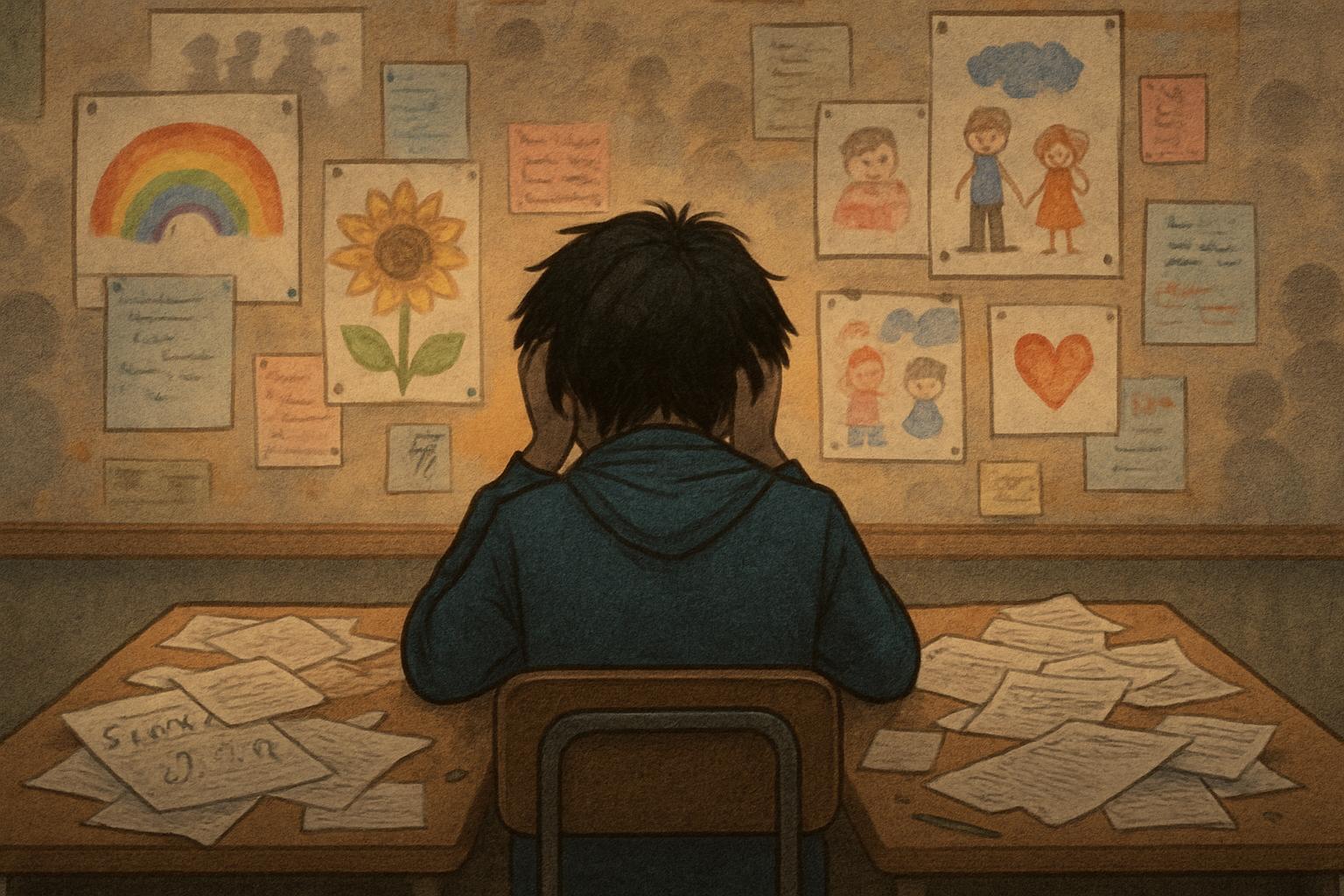A teachers' union has strongly refuted claims made by former Ofsted chief inspector Baroness Amanda Spielman that schools should not serve as therapeutic institutions for children. Lady Spielman warned that encouraging children to seek out problems could lead them into a negative cycle of unhappiness, suggesting that schools should instead concentrate on delivering a traditional education. She argued that adolescence naturally involves psychological "lumps and bumps" that children must experience to build resilience as adults.
However, the union representing school staff, NASUWT, responded swiftly, asserting that teachers have been compelled to take on roles far beyond education due to years of austerity and reduced external support services. Matt Wrack, NASUWT’s general secretary, emphasised that therapeutic approaches in schools are indispensable given the contemporary challenges faced by pupils. He pointed out that Ofsted’s forthcoming school inspection framework, which will focus on inclusion, makes such approaches essential. Wrack highlighted the numerous pressures on schools today, including funding shortages, family poverty, pandemic aftereffects, and the crisis in SEND provision, which have all increased mental health issues and absenteeism among pupils.
The NASUWT has also advocated for more comprehensive mental health support in schools, including the presence of trained counsellors in all state schools. The union’s general secretary, Dr Patrick Roach, has welcomed political initiatives aimed at improving timely and accessible mental health care tailored to children's needs. Data referenced by the union reveals that over half of teachers report poor pupil mental health as a significant disruption in classrooms, with more than 60% stating that pupils require additional mental health services. The union stresses the importance of extending support from primary education upwards to cover children throughout their schooling.
Lady Spielman’s comments come in the context of wider debates about the role of schools in managing children's wellbeing. She has previously expressed concerns about the unintended consequences of wellbeing checks in schools, warning that such measures might lead children to identify as unhappy or worried even if they are not. Drawing from a government trial across numerous schools, she noted that many interventions intended to support emotional wellbeing can have adverse effects on some pupils, despite short-term improvements.
Moreover, Lady Spielman’s tenure as Ofsted chief was marked by controversy following the tragic suicide of primary school headteacher Ruth Perry, whose school had been downgraded in an Ofsted inspection. An inquest found the inspection process was a contributing factor to Perry’s death. This tragedy drew criticism of Ofsted’s response as being "defensive and complacent," and Perry’s family publicly condemned Lady Spielman’s subsequent peerage, calling it an insult to their sibling’s memory.
The pressures on teachers extend beyond mental health support. Veteran educators have reported escalating pupil violence and aggression, further complicating the learning environment. Former Ofsted inspectors and teaching professionals note that the breakdown in relationships between parents and schools exacerbates issues like poor attendance and behavioural problems. Critics argue that these challenges highlight the necessity of restoring funding and external support services to schools.
During her 2020 speech at the National Children and Adult Services Conference, Lady Spielman underlined the complexities of mental health intervention in schools. She stressed the importance of balancing help provided within educational settings with timely referrals to specialist services, cautioning against overwhelming Child and Adolescent Mental Health Services (CAMHS) with too many referrals that might delay support for children in genuine need.
Lady Spielman has also been vocal about the systemic shortcomings in the provision for children with special educational needs and disabilities (SEND). A 2018 Ofsted report she led highlighted inconsistent support and raised concerns about the practice of 'off-rolling'—where schools remove difficult pupils to protect performance statistics. She advocated for more inclusive education policies to better serve all learners.
Recently, she expressed concerns regarding Labour’s proposed tax reforms on private schools, warning these could disrupt education for vulnerable children who attend those institutions. She stressed the need to consider carefully the effect of policy changes on the ability of children with complex needs to access appropriate schooling.
In summary, the debate around the role of schools is multifaceted, with tensions between safeguarding traditional educational aims and addressing the broader social and mental health challenges pupils face. While Lady Spielman cautions against turning schools into therapeutic spaces, education unions and frontline teachers highlight the practical realities that necessitate such support, given the current social and economic context.
📌 Reference Map:
- Paragraph 1 – [1], [4]
- Paragraph 2 – [1], [2]
- Paragraph 3 – [2]
- Paragraph 4 – [4], [5]
- Paragraph 5 – [1]
- Paragraph 6 – [3]
- Paragraph 7 – [5]
- Paragraph 8 – [6]
- Paragraph 9 – [7]
- Paragraph 10 – [1], [2], [4]
Source: Noah Wire Services
